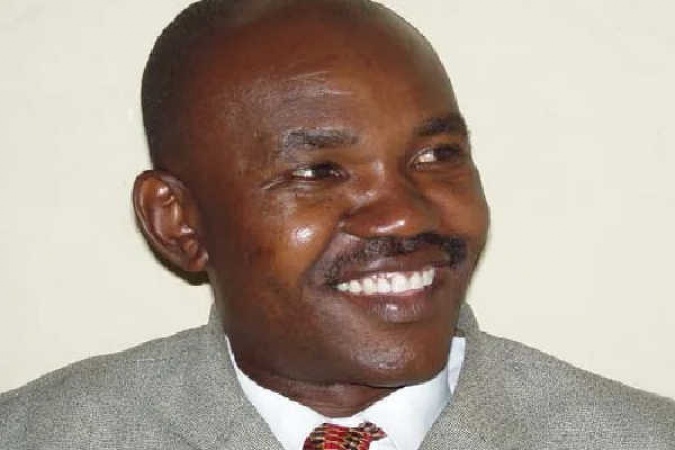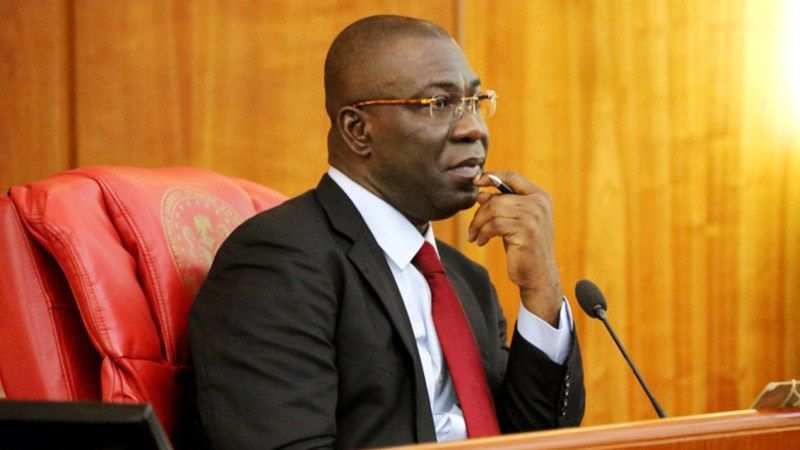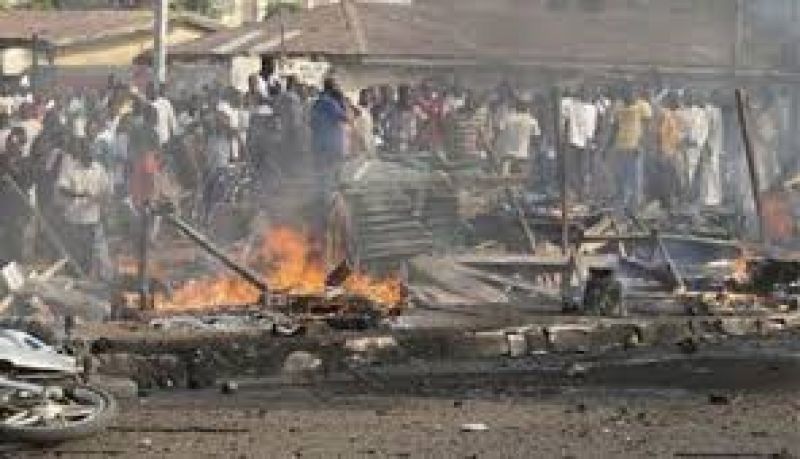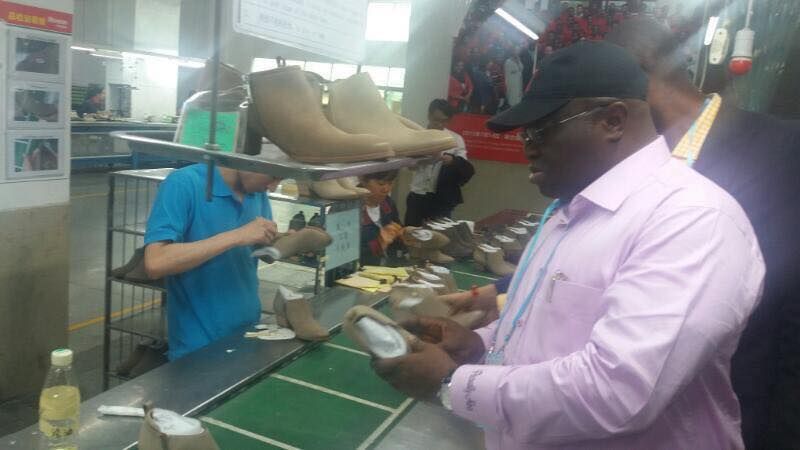SARS and Nigerians’ favourite sin: IMPUNITY
Posted by FN Editor | 4 years ago | 1,722 times

Tony Eluemunor
It is very easy to miss the tragedy showcased by the most unexpected “Nigeria #ENDSars” protests that sent shook the country recently. Thus, the right lessons that should be learnt from that uprising may remain unlearnt.
My African fiction teacher at the University of Nigeria, Nsukka, the late Prof Chinua Achebe, wrote in his first collection of essays: “Morning Yet On Creation Day” that experience is not what happened but the lessons we learn from events that happened.
To drive home his point, he explained that “much could happen to a stone without making the stone any wiser,” and so experience only comes from the lessons that have been learnt from events.
Achebe wrote that in support of his thesis that Nigeria missed the real lessons of the Nigerian Civil War, and that the effect of learning the wrong lessons is that “while Japan snatched victory from the jaws of defeat” after her defeat in World War II, “Nigeria snatched defeat from the jaws of victory” in the 1967—1970 Nigerian Civil War. Days ago, Nigeria dissolved the Special Anti-Robbery Squad (SARS) owing to public protests over its disregard for human lives and terrible lawlessness.
Hey, how did SARS come into being? For this, you have to pan back to September 1992, when the then Lagos State Commissioner, Mr. Simeon Danladi Midenda formed the moniker, when after the police killed a soldier, Col. Israel Rindam, from Plateau State, who had disembarked from his car in a traffic jam in Lagos, to find out the cause of the mayhem, and he was callously shot dead by the police. Soldiers poured out into the streets of Lagos, like soldier ants, in search of any police officer to visit their retaliation upon.
As Nigerian Policemen and women disappeared from Lagos streets for two whole weeks, for fear of reprisals from soldiers, the crime rate soared as criminals enjoyed an uninterrupted freedom to operate at will. It took two weeks for the soldiers to be calmed down, and the team, three Policemen at whose duty post Col. Rindim met his death, was arrested.
During those intervening two weeks, armed robbers had taken absolute control of Lagos state, and the likes of Shina Rambo who could not be challenged by any force had made Lagos into a security hell. The Inspector-General of Police, Alhaji Aliyu Attah, searched for a way to restore order in Lagos, and hit on the idea of transferring Mr. Simeon Danladi Midenda (who retired as a Commissioner of Police) from his duty post at Benin-City to Lagos.
When Mr. Midenda arrived Lagos, he met three anti-robbery squads operating there and so he needed to have a call-sign to differentiate his team from the rest, and he simply added Special to the Anti-Robbery Squad to form SARS. According to Midenda, “The secret behind the successes of the original SARS was its facelessness and its mode of operation.
We operated in plain clothes and used plain vehicles. Members could not carry Walkie Talkie openly talk less of guns. We were fully combatant and combat ready at all times.
We stayed under cover while monitoring radio communication of conventional police operatives. As soon as robbery was reported anywhere in Lagos, we went out with speed, each team to a predetermined location. At our various locations, we patiently waited while the conventional policemen continued to chase the robbers around Lagos. In their bid to escape, the robbers almost always fell into our traps and met their waterloo.
We never stood on the road looking for robbers. We met them in their beds. We did not also receive direct complaints from members of the public but allowed the DPOs to do their job and hand over to us established cases of armed robbery for further follow up action.” The rest, they say, is history; Nigeria’s sad history. In 2002, Mr. Midenda was transferred to Umuahia, Abia state, and he lost his tight control of SARS, after having lost 12 policemen and two informants during his Lagos tour of duty.
The SARS he left behind was later commanded from Abuja, as it had spread to every state. It lost focus and its agents began to stop vehicles on the highway just to demand for registration papers— guns at the ready to shoot. It was only natural that since its impunity was not checked, it grew to the level that Nigerians would be stopped on the roads and their phones would be looked into; so to their laptops.
For decades, the public has raised a lasting outcry against SARS and its hellish methods as numerous Nigerians lost their lives in the hands of evil policemen, but no reform took place, yet, neither the police force nor the government could reform SARS. It had even been banned three or four times before, but it always found a way to rubbish such orders.
Actually, the trouble is not and was not with SARS. Nigerian Security agents have in their hearts and souls the very nature that made SARS abominable. The soldiers are not just killers but have a terrible loathing of, and inexplicable repugnance against, the “bloody and idle” civilians. Every person that wears a military or paramilitary uniform appears to believe that he can kill and go scot free.
Talk about “kill and go” squad and Nigerians will know you are referring to the Anti-Riot (Mobile) Police Squad. They all showed their true colours during the COVID-19 lock down and within a space of two weeks, they had killed more Nigerians than the disease did. I know it is easy to sing with Fela that “uniform na cloth, na tailor dey sow am” (uniform is just a piece of cloth, and a tailor sows it) yet, this disease does not affect only those in uniform and under arms.
The average Nigerian in any position of authority also suffers from this disease; it is the disease of impunity—freedom from punishment or any injurious consequence, no matter how despicable the injury caused a person or the country.
So, let President Mohammadu Buhari or the Police Inspector General not take pride in banning SARS. They should ban impunity in Nigeria. Until then, Nigeria remains a dangerous place as the number of lives lost since the protest started and even after the SARS was banned shows, especially the mayhem visited on Abuja by the Northern youths who exercised their rights to protest against the banning of SARS. That they could become violent right inside Abuja city centre speaks volumes.
Readers Comments
comment(s)
No comments yet. Be the first to post comment.








